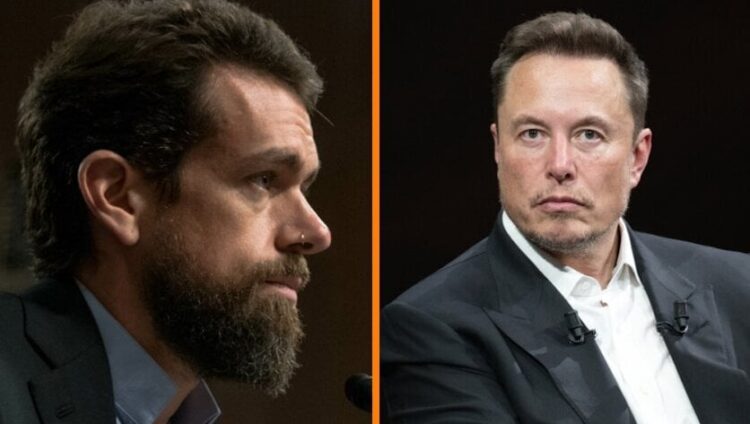The rising debate over the way forward for mental property regulation within the age of AI took a wild flip previously few days when Jack Dorsey, the co-founder of Twitter and Block, and initially a number one determine at Bluesky, declared he want to see all IP regulation eradicated.
“Delete all IP regulation,” Dorsey wrote on X on Friday (April 11).
Elon Musk, proprietor of X and head of President Donald Trump’s Division of Authorities Effectivity (DOGE), chimed in by saying “I agree.”
Not surprisingly, Dorsey and Musk obtained pushback on the concept, at a time when voices on either side of the controversy are rising louder.
On one facet are IP house owners in numerous cultural industries who’ve been calling for stricter enforcement of copyright and different IP legal guidelines amid the increase in generative AI fashions, lots of which seem to have been educated on copyrighted supplies with out the house owners’ consent.
On the opposite facet are leaders of tech firms engaged on AI which have discovered themselves below stress from lawsuits introduced by copyright holders over the unauthorized use of copyrighted supplies.
Ed Newton-Rex, a former VP of Audio at Stability AI and now a main campaigner for the safety of mental property, described Dorsey and Musk’s assertion as “tech execs declaring all-out conflict on creators who don’t need their life’s work pillaged for revenue.”
Pushback additionally got here from Nicole Shanahan, a Silicon Valley entrepreneur, patent specialist and lawyer who served as Robert F. Kennedy Jr.’s working mate within the 2024 election.
“Precise IP skilled right here – NO,” she wrote in response to Dorsey’s tweet. “IP regulation is the one factor separating human creations from AI creations. If you wish to reform it, let’s discuss!”
To which Dorsey responded: “Creativity is what at the moment separates us, and the present system is limiting that, and placing the funds disbursement into the palms of gatekeepers who aren’t paying out pretty.”
“Tech execs declaring all-out conflict on creators who don’t need their life’s work pillaged for revenue.”
Ed Newton-Rex
Notably, Dorsey is Chairman of Block, Inc., the corporate previously often known as Sq., which owns music streaming service TIDAL.
Dorsey’s tweet doubtless doesn’t mirror official TIDAL coverage on the problem of IP. The corporate’s CEO, Jesse Dorogusker, informed MBW just a few years in the past that he views music as being “undervalued and underpriced.”
One can solely think about what the worth of music would appear like if copyright protections had been to vanish altogether. It could not be a stretch to think about that its worth would fall near zero, together with the worth of different commercialized cultural merchandise, and the worth of labor carried out by artists and different creators.
Responding to Dorsey, some on social media identified that Dorsey’s personal companies have benefited from IP protections.
“Very straightforward to say after you’ve made billions off your IP,” one commenter wrote.
Dorsey’s tweet comes as some tech firms elevate the stress on lawmakers to grant them unfettered entry to copyrighted content material for free of charge.
In a latest submission to a UK parliamentary committee learning potential reforms to copyright regulation, Google declared that “coaching on the open internet should be free.”
The UK is taking a look at reforms to copyright regulation to spice up the competitiveness of UK AI companies. Although no last insurance policies have been set, it’s been reported that the UK authorities favors a proposal for an “opt-out” regime for AI builders: These constructing AI fashions can be allowed to make use of copyrighted content material with out permission by default, except a copyright proprietor expressly opts out of getting their property used.
Newton-Rex has led the cost towards that proposal, organizing a protest by artists that culminated within the launch of a “silent album” to mirror artists’ fears that loosening copyright legal guidelines might hurt and even silence human music.
The heads of the three music majors – Common Music Group Chairman and CEO Sir Lucian Grainge, Sony Music Chair Rob Stringer, and Warner Music Group CEO Robert Kyncl – have additionally all come out towards the UK’s proposed loosening of copyright.
In its personal submission to the UK parliamentary committee, OpenAI, maker of the ChatGPT chatbot, known as for an exemption to copyright regulation for textual content and information mining, which might primarily imply free use of copyrighted content material for the coaching of AI fashions.
OpenAI was co-founded by Musk, who left the corporate and is now embroiled in a lawsuit towards it, with Musk opposing the corporate’s shift away from a non-profit enterprise mannequin.
Musk now runs a competitor to OpenAI’s ChatGPT, the chatbot Grok, which is built-in into the X platform.
Some have famous that, as head of DOGE, Musk’s concepts on IP might have appreciable affect contained in the Trump administration.
OpenAI is dealing with a number of lawsuits within the US alleging that it educated ChatGPT on copyrighted books with out authorization. In what some have seen as an ironic twist, the corporate has been investigating whether or not the Chinese language-made AI chatbot DeepSeek was constructed utilizing OpenAI’s mental property with out permission.
OpenAI, together with different AI firms dealing with copyright lawsuits, corresponding to Anthropic, Suno, and Udio, have argued in US courts that their use of copyrighted materials ought to be granted a “truthful use” exemption below US copyright regulation.
To this point, no US courts have dominated on whether or not coaching generative AI fashions on copyrighted supplies with out permission quantities to truthful use – though one courtroom just lately dominated that using copyrighted supplies by a non-generative AI algorithm was copyright infringement.Music Enterprise Worldwide




